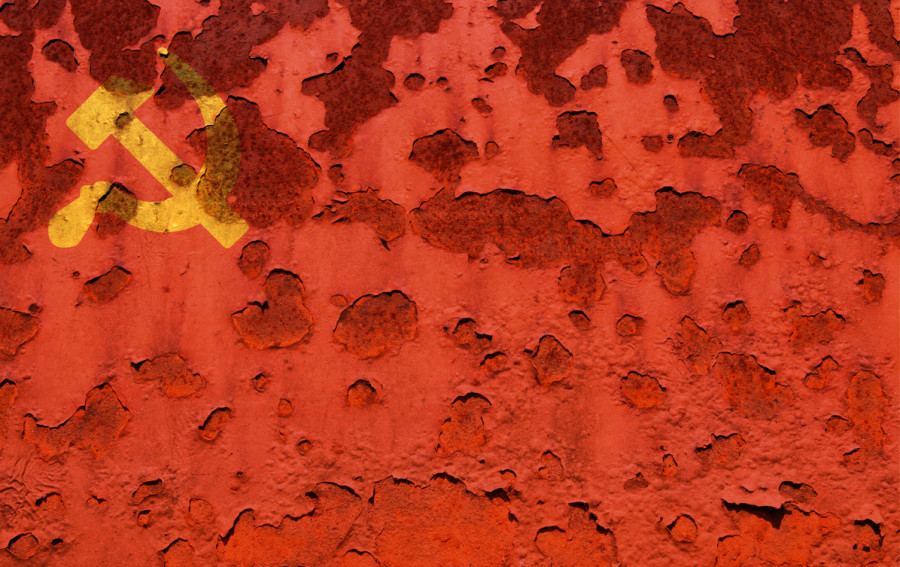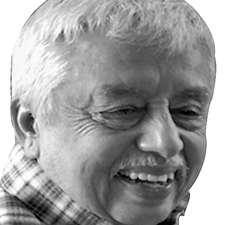Columns
The mirage of unity
One thing they should have no problem concluding is that they are not communists.
Naresh Koirala
The quarrel between the KP Sharma Oli and Madhav Kumar Nepal factions in the UML intensified after Prime Minister Sher Bahadur Deuba secured Parliament's vote of confidence. Yet, the party's younger leaders have not given up their search for a formula to avert the party’s formal split. They argue that the party must remain united to advance the "communist movement". When the Supreme Court restored the House dissolved by Oli, Ghanashyam Bhusal, an influential member of UML's standing committee said, "We have saved Parliament; now, we have to save the party."
The obsession with "communist unity" is not limited to the UML leaders. Even Prachanda, the chair of the Communist Party of Nepal (Maoist Centre) and a known opportunist, is passionate about it. In a recent television interview ("Yaksha Prashna"), he said, "My support for Deuba does not mean I have abandoned my dream of communist unity/movement. Under Nepal's leadership, the UML and we will come together again". (Months ago, the Supreme Court had invalidated the merger of the Maoists and the UML.)
Communist unity
Factionalism, not unity, has been the hallmark of Nepal's communist movement from its early days. Nepal's first communist party, Communist Party of Nepal, was formed in 1949 under the chairmanship of Pushpa Lal Shrestha. Its ideological basis was Marxism-Leninism. By the 1959 general elections, the communist party already had, at the minimum, three ideological strands: Those who wanted to overthrow the monarchy and establish a people's republic; those sympathetic towards the monarchy; and others, in-between. The absence of a coherent ideology was manifest in the party's performance in the election. The communists won a total of four seats in the 109-seat Parliament.
Following king Mahendra's dissolution of Parliament in 1960 and the banning of political parties, the communist party started splitting with breakneck speed—22 communist parties operated in Nepal between 1962 and 1990. The most influential of them were the radicals in Jhapa (forerunner of the modern-day UML) who, in 1969, launched a mayhem of killing and looting of local landlords (they wanted a peasant revolution across the country), and the moderate pro-monarchy group collaborating with the king.
The party’s break-ups continued after 1990. The Maoist party, formed after 1990, went on a rampage of death and destruction of anyone and anything that they believed aided the “enemy of the people”. Their target enemies included fellow communists in the UML. This ended in 2005, when under the so-called 12-point understanding, they gave in to multiparty democracy. About 15 years earlier, the UML had also surrendered its Marxian dream to multiparty democracy under the guise of a face-saving, unashamedly ambiguous so-called people's multiparty democracy as its new ideological core.
None of this stopped the communists' disintegration. Not long after the signing of the 12-point understanding, the Maoist party mutated into several smaller Maoist parties. In 2018, the largest faction of the Maoists and the UML united as part of an electoral alliance; promised a communist union unparalleled in the world; won the parliamentary election with an overwhelming majority, and three years later, they split and started operating independently as the UML and the Maoist party. The UML is now on the verge of implosion due to internal contradictions.
Why are communist parties so unstable? The answer lies in their inability to fully embrace multiparty democracy. The "dictatorship of the proletariat" (a code for the dictatorship of the communist party) and associated authoritarian control of all aspects of governance underpinned communist education since their start in 1918. There is no Marxist/Leninist/Maoist teaching which respects multiparty democracy or diversity of ideas. To the communists, accepting multiparty democracy means giving up long-held orthodoxies, and it is understandably difficult.
That explains why, despite their surrender to multiparty democracy, the communists refuse to change their identity and make it compatible with their new political position. They continue to call themselves communists although neither their individual nor collective behaviour represents anything that the word “communist” invokes. The “multiparty communists” are like a hybrid whose head is in perpetual conflict with its heart. The heart wants to remain an orthodox communist, but the head knows there is no going away from multiparty democracy. The ideological muddle that this conflict creates is apparent in the rudderless way the communist parties behave. The erstwhile Nepal Communist Party's sending its cadres to learn from the Chinese Communist Party and study Xi Jinping's thoughts speaks to the core of this muddle.
Know who you are
The history of Nepal's communist party in the last 70 years is a record of failed party unity; repeated cycles of party formation, break-up, more break-ups; reunion, break up, more break-ups, and so on. Any enduring unity of the communists is a mirage. They have no ideology to sustain unity. They seem to be at a loss about their own identity.
The younger leaders of the UML are trying to stop the party from implosion, and they may succeed. But this will be unity for power and privilege; it will not last long and no communist movement (whatever it means) will follow from it. The idea of a "communist movement" started back in 1918 when the communists were dreaming of completely overthrowing the capitalists and replacing them with communist parties all over the world, united in ideology and purpose. That dream died a long time ago. It makes no sense to resurrect it in the present-day Nepali context as a justification for communist unity.
All evidence suggests that enduring communist unity is a mirage; so is "communist movement" without communist unity. Instead of wasting time searching for a unity formula, the young leaders in the UML would do better with some soul searching to establish their identity in the changed circumstances. One thing they should have no problem concluding is that they are not communists. Once they have established their identity, the process of unity can begin.




 17.12°C Kathmandu
17.12°C Kathmandu















